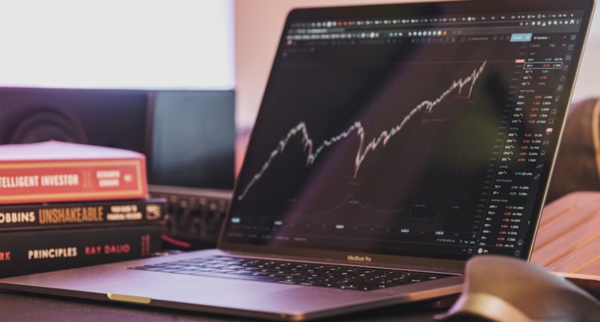Donald Trump Tariffs: Why Did Nifty50 and Sensex Fall? Key Reasons Behind Market Drop
by Timesceo

Indian equity markets witnessed a sharp decline recently, with benchmark indices Nifty50 and BSE Sensex tumbling significantly during intraday trade. The downturn was largely triggered by renewed global trade tensions following former U.S. President Donald Trump’s comments on tariffs, which rattled investor sentiment worldwide. The selloff came amidst a mix of global and domestic pressures, prompting widespread concern across markets.
Trump’s Tariff Talk Returns to Haunt Markets
The immediate trigger for the fall was Donald Trump’s renewed push for aggressive tariffs on Chinese goods if he returns to the White House in 2025. Trump’s remarks, which emphasized the imposition of steep tariffs across key sectors—particularly on imports from China and potentially other countries—reignited fears of a full-blown trade war. Given the interconnected nature of global supply chains, such a move could destabilize international trade, hurt export-dependent economies, and increase inflationary pressures globally.
India, although not directly in Trump’s crosshairs, remains vulnerable to global risk-off sentiment. The mere prospect of increased protectionism and volatility in global markets was enough to send domestic investors into a sell-off mode.
Global Cues: Weakness in US and Asian Markets
Adding to the worries, global markets were under pressure. Wall Street indices like the Dow Jones and Nasdaq had declined in the previous session, driven by geopolitical tensions and hawkish commentary from U.S. Federal Reserve officials regarding interest rates. Asian markets mirrored the negative sentiment, with key indices in Japan, Hong Kong, and South Korea all trading in the red.
These global cues often set the tone for Indian markets at the open. With risk aversion on the rise, foreign institutional investors (FIIs) began offloading shares, triggering further weakness in the domestic market.
FIIs Turn Net Sellers Again
Foreign investors, who had turned cautious in recent sessions, continued their selling spree amid global uncertainty. On the day of the fall, provisional data showed FIIs pulling out significant capital from Indian equities. The outflow put downward pressure on both Nifty50 and Sensex, as heavyweights in the banking, IT, and metal sectors came under selling pressure.
Sectoral Drag: Metals and IT Lead the Fall
The metal sector was among the worst hit, as Trump’s proposed tariffs could directly hurt global trade volumes, thereby impacting metal demand and prices. Tata Steel, JSW Steel, and Hindalco saw sharp declines.
IT stocks also took a beating, as fears of recession in the West and a potential cut in outsourcing budgets resurfaced. TCS, Infosys, and Wipro all traded lower, contributing heavily to the fall in indices.
Domestic Caution Ahead of GDP Data
Domestically, investors also turned cautious ahead of key GDP data expected later in the week. Any signs of a slowdown in growth could further dampen sentiment, especially when combined with global headwinds.
Conclusion
The sharp fall in Nifty50 and BSE Sensex was the result of a combination of global and domestic factors, with Donald Trump’s tariff rhetoric acting as the key trigger. As uncertainty looms large on the global economic front, market participants are likely to remain risk-averse in the near term, with volatility expected to continue.
Also Read:
NASA Confirms 180-Foot Asteroid Passing Earth at High Speed
Taylor & Travis’ Engagement Sets New Instagram Record
Top Weight Loss Programs in 2025, Reviewed by a Dietitian